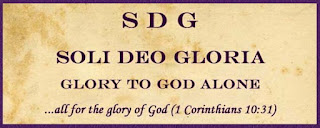What will happen during 2021?
“Today dear friends,
we stand upon the verge of the
unknown.
Who can tell what we shall find?
What new experiences,
what challenges shall come;
what new needs shall arise?
(L.B. Cowman, Streams in the Desert)
You don’t know what 2021 holds for you. I
don’t know what the year holds for me, either. We face the unknown.
“The unknown.” What do those words do to you?
“The unknown” creates strong emotions for me
when those two words inflict themselves on my life, my future, my family.
When I come face-to-face with “the unknown,” my stomach knots. My knees wobble.
I don’t know what I’ll find but I know I’ll
face challenges, and I want to know:
- Just how challenging will the challenges be?
- Just how serious will the needs be?
- Will I come out okay on the other side?
Over and under and around it all, I wonder if
I will handle them well.
What about you?
What if, in 2021, you learn that “the
unknown” turns out to be God asking you to do something that seems too hard?
What if “the unknown,” once known, is
something that breaks your heart?
Or something that means the end of life-long
dreams?
Or what if you suddenly have a crucial need?
What if the challenges of 2021 threaten to overwhelm
you?
What if God asks you to give your “utmost”
for Him?
At such moments, we stand at a turning point.
We are at a defining moment.
We can say yes to God, take hold of His hand,
and step into that potentially painful, frightful “unknown.”
Or we can tell God no, turn away, and try to
slog through life on our own terms.
The choice is ours.
“Before we choose to follow God’s will,
a crisis must develop in our lives. . . .
He brings us to the place where He asks us
to be our utmost for Him and we begin to
debate.
He then providentially produces a crisis
where we have to decide—for or against.
That moment becomes a great crossroads in our
lives.”
As you know, Abraham has been a special hero
to me for years now. Let me explain why:
God made a staggering request of him: “Leave
your country, your people and your father’s household and go to the land I will
show you.” (Sounds like what missionaries do, doesn’t it?)
God didn’t tell Abraham where he was supposed
to go—only that he was to go (Genesis 12:1). He was asking Abraham to give his utmost
for Him.
So there he stood, at a critical turning
point in his life.
Who knows how long
Abraham debated with himself
and with God
as he stood at his crossroads?
He must have agonized.
But, bless his heart, at his defining moment,
Abraham agreed to go where God sent him even though he did not know where he
was going.
The book of Hebrews summed up Abraham’s
pivotal moment this way:
“Abraham, by faith, obeyed and went out,
even though he did not know where he was
going”
(Hebrews 11:8).
He set out, simply trusting God. Talk about a
blind leap of faith!
Perhaps today you stand at a crossroads and you’re
debating whether to say “yes” or “no” to God. If not today, maybe a week from
now, or ten months from now.
During 2021,
when you face as-yet-unknown challenges and
needs,
when your stomach knots and your knees
wobble,
when you don’t know where God is leading you,
may the following words encourage you:
“The only thing you know
is that God knows what He is doing.
Continually examine your attitude toward God
to see if you are willing to ‘go out’
in every area of your life,
trusting in God entirely. . . .
You don’t know what God is going to do next.
Each morning . . . is a new opportunity
to ‘go out’ building your confidence in God.”
An opportunity?
Yes, an opportunity!
An opportunity to trust God,
an opportunity to grow in faith.
For the Lord your God
takes hold of your hand and says to you:
“Don’t be afraid. I will help you.”
(Isaiah 41:13)








